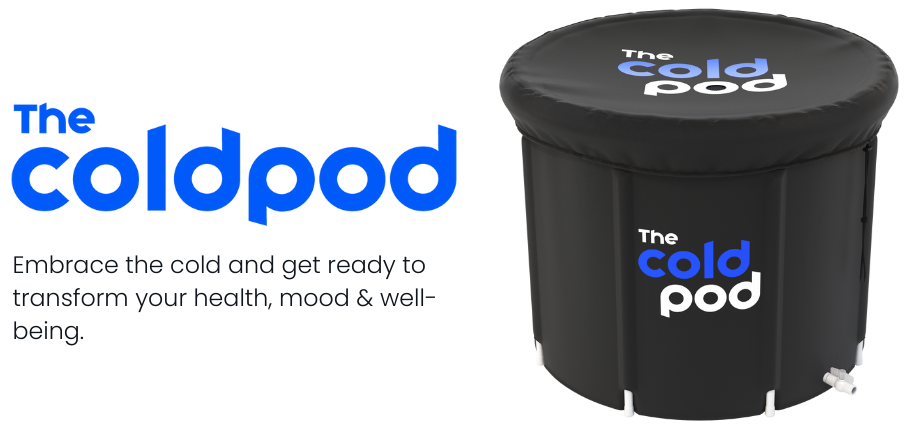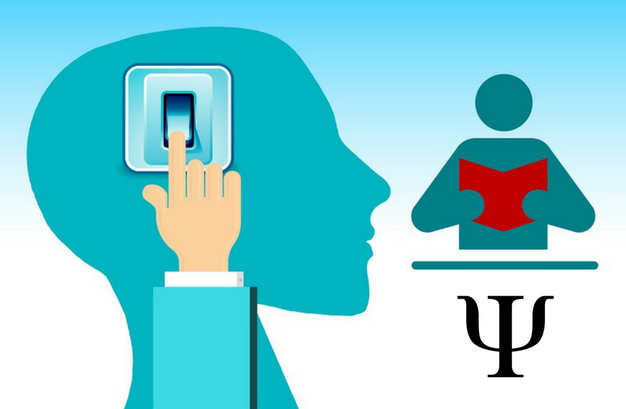Unlocking the Mental Health Benefits
of Cold Plunge: A Comprehensive Guide
David Webb (Owner, writer and host of All-About-Psychology.Com)
In recent years, cold plunges, or cold water immersion, have surged in popularity as a wellness practice embraced by athletes, health enthusiasts, followers of the Wim Hof method and individuals seeking holistic approaches to self-care. While traditionally associated with physical benefits like improved muscle recovery and enhanced circulation, there is growing interest in the positive impact that cold plunges can have on a person's mental well-being. With this in mind, this article delves into the invigorating world of cold plunges and explores its potential to improve aspects of mental health, such as stress reduction and mood enhancement.
Understanding Cold Plunges
Cold plunges, also known as cold water immersion, involve submerging the body in cold water for a specified period of time (typically 3 to 15 minutes). This practice can take various forms, including ice bath tubs, cold showers, or simply plunging into natural bodies of cold water like lakes or rivers. The roots of cold water immersion can be traced back thousands of years, with historical accounts of cultures worldwide embracing the invigorating effects of cold water for physical and mental well-being. For example, In their article 'Cold for centuries: a brief history of cryotherapies to improve health, injury and post-exercise recovery', published in the European Journal of Applied Physiology, Allan et al note that the Ancient Greeks utilized cold-water for therapies as well as relaxation and socialization.
Physiologically, the body responds to cold water immersion through a series of complex mechanisms aimed at maintaining core temperature and ensuring survival. When exposed to cold water, blood vessels constrict in a process known as vasoconstriction, redirecting blood flow away from the extremities and towards vital organs. This response helps conserve heat and prevent hypothermia.
Simultaneously, the body activates its sympathetic nervous system, triggering the release of stress hormones like adrenaline and noradrenaline. These hormones serve to increase heart rate, blood pressure, and metabolic rate, generating heat to counteract the cold environment. Additionally, cold water immersion stimulates the release of endorphins, the body's natural painkillers, contributing to a sense of euphoria and well-being.
Popular methods of cold water immersion include:
- Ice Baths: Immersing the body in a tub filled with cold water and ice cubes, typically maintained at temperatures ranging from 50 to 59 degrees Fahrenheit (10 to 15 degrees Celsius).
- Cold Showers: Taking a shower with water at a colder temperature than usual, typically ranging from 50 to 68 degrees Fahrenheit (10 to 20 degrees Celsius).
- Natural Bodies of Cold Water: Plunging into cold lakes, rivers, or oceans, where water temperatures can vary depending on location and season.
Each method offers its own unique experience and benefits, but all share the common goal of exposing the body to cold stimuli to elicit physiological responses conducive to improved health and well-being. Whether you prefer the controlled environment of an ice bath or the exhilarating immersion in natural waters, cold plunges offer a refreshing way to invigorate both body and mind.
Mental Health Benefits of Cold Plunge
Cold plunges have garnered attention not only for their physical benefits but also for their potential impact on mental health. Cold water immersion is claimed to yield a multitude of psychological advantages, including:
Reduced Stress and Anxiety:
As mentioned, the shock of cold water triggers the release of stress hormones like adrenaline and noradrenaline, activating the body's fight-or-flight response. Over time, regular exposure to cold water can help desensitize the body's stress response, leading to reduced levels of cortisol, the primary stress hormone. By promoting relaxation and inducing a state of calm, cold plunges offer a natural remedy for managing stress and anxiety.
Improved Mood and Emotional Resilience:
Cold water immersion has been shown to stimulate the release of endorphins, neurotransmitters known for their mood-enhancing properties. The surge of endorphins following a cold plunge can elicit feelings of euphoria and well-being, providing a natural mood boost. Additionally, the challenge of facing cold water head-on can cultivate resilience, helping individuals develop a more positive outlook on life and navigate adversity with greater ease.
Enhanced Focus and Mental Clarity:
The invigorating effects of cold water immersion extend beyond physical sensations to mental clarity and focus. Many individuals report feeling mentally sharp and energized after a cold plunge, making it an effective strategy for improving concentration and productivity for some.
Regulation of Sleep Patterns:
Cold water immersion can help promote deeper and more restful sleep. The drop in core body temperature following a cold plunge signals to the body that it's time to sleep, facilitating the onset of sleep and enhancing sleep quality. By incorporating cold plunges into your evening routine, you may experience more refreshing sleep and wake up feeling rejuvenated and energized.
Boosted Confidence and Self-Esteem:
Stepping out of your comfort zone and embracing the challenge of cold water immersion can foster a sense of accomplishment and empowerment. Conquering the discomfort of cold water can instill confidence in your ability to overcome obstacles and push past limitations. With each cold plunge, you reaffirm your resilience and resilience, contributing to a positive self-image and heightened self-esteem.
Potential Alleviation of Symptoms of Depression and PTSD:
Cold water immersion may hold promise as a complementary therapy for individuals struggling with depression and post-traumatic stress disorder (PTSD). The release of endorphins and activation of the sympathetic nervous system during cold plunges can provide temporary relief from symptoms of depression and PTSD, offering a natural and accessible intervention for mental health management.
Note To Psychology Students
A great deal more research is needed to corroborate these claims. As such, investigating the mental health benefits of cold plunge would be a great topic for a research project or final year thesis/dissertation.
Despite the fact that published peer-reviewed research into the mental health benefits of cold plunges is currently thin on the ground, the signs are encouraging that they can offer an alternative way to help cultivate a greater sense of well-being, resilience, and vitality in daily life.
While more research is needed to make conclusive claims about cold water therapy, preliminary studies demonstrate compelling potential mental and physical health benefits. (Caroline Thomason, Forbes Health Magazine)
Mechanisms Behind Potential Mental Health Benefits
The mental health benefits of cold plunges stem from a complex interplay of physiological mechanisms that affect neurotransmitter activity, hormone regulation, and nervous system function. Understanding these underlying mechanisms in more detail will help shed light on why cold water immersion holds such potential as a potent tool for enhancing mental well-being:
Activation of the Sympathetic Nervous System and Release of Neurotransmitters:
Cold water immersion triggers the activation of the sympathetic nervous system, the branch of the autonomic nervous system responsible for the body's fight-or-flight response. This activation leads to the release of neurotransmitters such as norepinephrine and dopamine, which play key roles in mood regulation, arousal, and attention. The surge of these neurotransmitters following a cold plunge can contribute to feelings of alertness, focus, and well-being.
Reduction of Inflammation and Oxidative Stress:
Exposure to cold water has been shown to reduce inflammation and oxidative stress in the body, which are implicated in the pathogenesis of various mental health disorders, including depression and anxiety. Cold water immersion activates anti-inflammatory pathways and enhances antioxidant defenses, helping to mitigate the detrimental effects of chronic inflammation and oxidative damage on mental health.
Modulation of the Hypothalamic-Pituitary-Adrenal (HPA) Axis:
The HPA axis plays a central role in the body's response to stress, regulating the release of stress hormones like cortisol. Cold water immersion has been found to modulate the activity of the HPA axis, leading to reduced cortisol levels and enhanced resilience to stress. By restoring HPA axis function to a more balanced state, cold plunges can promote emotional stability and mitigate the negative impact of chronic stress on mental health.
Stimulation of the Vagus Nerve and Its Impact on Mood Regulation:
The vagus nerve, a major component of the parasympathetic nervous system, plays a crucial role in regulating mood and emotional well-being. Cold water immersion stimulates the vagus nerve, leading to increased vagal tone and activation of the body's relaxation response. This vagal stimulation has been associated with improvements in mood, anxiety reduction, and enhanced emotional regulation, highlighting the importance of the vagus nerve in mediating the mental health benefits of cold plunges.
Release of Endorphins and Other Feel-Good Hormones:
One of the most well-known effects of cold water immersion is the release of endorphins, the body's natural painkillers and mood elevators. Endorphins are released in response to the stress of cold water exposure, leading to feelings of euphoria and well-being. Additionally, cold plunges stimulate the release of other feel-good hormones, such as serotonin and oxytocin, further contributing to the mood-enhancing effects of this therapeutic practice.
By appreciating the underlying mechanisms behind the mental health benefits of cold plunges, we gain a deeper understanding for the potential transformative effects of this simple yet powerful intervention. From neurotransmitter modulation to anti-inflammatory effects, cold water immersion offers a holistic approach to promoting mental well-being and enhancing resilience in the face of life's challenges.
Incorporating Cold Plunges into Your Routine
Introducing cold plunges into your wellness regimen can be a rewarding journey, but it's essential to approach this practice with care and consideration. Here's a quick guide to safely and effectively incorporate cold water immersion into your routine:
Safety Precautions and Considerations:
Before embarking on cold plunges, it's crucial to prioritize safety. Ensure that you're in good health and consult with a healthcare professional, especially if you have any underlying medical conditions. Individuals with cardiovascular issues or respiratory problems should exercise caution and seek medical guidance before attempting cold water immersion. Additionally, pregnant women and those with compromised immune systems should avoid cold plunges altogether.
Gradual Adaptation and Acclimatization:
Cold water immersion can be a shock to the system, especially if you're not accustomed to cold temperatures. To minimize discomfort and reduce the risk of adverse reactions, start gradually by incorporating shorter exposure times and less intense cold temperatures. Allow your body time to acclimatize to the sensation of cold water before gradually increasing the duration and intensity of your cold plunges.
Recommended Frequency and Duration:
The frequency and duration of cold plunges can vary depending on individual preferences and tolerance levels. As a general guideline when starting out, aim for 1-3 cold plunges per week, with each session lasting anywhere from 1 to 10 minutes. Listen to your body's signals and adjust accordingly, being mindful not to overexert yourself or push past your limits. Consistency is key, so aim to incorporate cold plunges into your routine regularly for optimal mental health benefits.
Tips for Maximizing the Mental Health Benefits:
To maximize the mental health benefits of cold water immersion, consider the following tips:
- Practice deep breathing techniques to help regulate your body's response to cold water and promote relaxation.
- Focus on mindfulness and present-moment awareness during your cold plunges, embracing the sensations and observing any thoughts or emotions that arise.
- Follow up your cold plunge with a warm beverage or a relaxing activity to ease any lingering discomfort and enhance feelings of comfort and well-being.
When to Avoid Cold Plunges:
Please bear in mind that while cold plunges may offer numerous benefits, they may not be suitable for everyone. Avoid cold water immersion if you have:
- Heart conditions, such as arrhythmias or coronary artery disease
- Respiratory conditions, such as asthma or chronic obstructive pulmonary disease (COPD)
- Circulatory disorders, such as Raynaud's disease or peripheral artery disease
- Compromised immune function or are recovering from illness or injury
If you experience any adverse reactions or discomfort during a cold plunge, exit the water immediately and seek warmth and medical attention if necessary. Remember to listen to your body and prioritize safety.
A Final Word
Cold plunges potentially offer a wealth of mental health benefits that can positively impact multiple aspects of your well-being. From reducing stress and anxiety to improving mood, enhancing focus, regulating sleep patterns, boosting confidence, and perhaps even alleviating symptoms of depression and PTSD, the transformative power of cold water immersion is becoming increasingly apparent.
Should you decide to embark on a journey with cold plunges, I sincerely hope that you find it as beneficial for your physical and mental health as I have. Whether you choose to dip your toes into ice tubs, embrace cold showers, or take a plunge into natural bodies of cold water, you'll discover a world of possibilities for enhancing your mental wellness.
However, it's essential to approach cold water immersion with caution and mindfulness. Prioritize safety by consulting with a healthcare professional before beginning any new wellness practice, especially if you have underlying medical conditions or concerns. Listen to your body's signals, respect your limits, and gradually acclimate to the sensations of cold water to maximize the benefits while minimizing risks.
By integrating cold plunges into your routine with care and consideration, there's a good chance you'll unlock a newfound sense of vitality, resilience, and joy in your life. So, in your quest for improved mental well-being and holistic health, why not embrace the transformative potential of cold water immersion today?
The Cold Pod Ice Bath Tub
This is the portable cold plunge tub I use, absolutely love and heartily recommend.
Please note that at no additional cost to you, All About Psychology may earn a commission from the Amazon links on this page. This helps support the All About Psychology website and allows me to continue providing valuable psychology information and resources, which I've been doing since I launched the website in 2008.
About the Author
David Webb is the owner, writer and host of three websites built around his teaching and research interests; including All-About-Psychology.Com which receives over a million visits a year.
A passionate promoter of psychology through social media, over 850,000 people follow his psychology Facebook page and he is featured on the British Psychological Society list of the 100 most followed psychologists and neuroscientists on Twitter.
A bestselling author, his published work includes: The Psychology Student Guide - The Incredibly Interesting Psychology Book and, On This Day in Psychology.
Want to Read More Great Articles?
See following link to check out a fascinating collection of psychology articles by leading academics and researchers.
This Psychology Symbol - Vintage Retro Striped Sunset T-Shirt is available from Amazon (prime eligible) in a range of colors for women and men. Sales help support this website, which has been providing free and comprehensive information and resources for psychology students and educators since 2008.
Recent Articles
-
Tourettes: Understanding Tourette Syndrome Beyond Stereotypes
Feb 23, 26 06:01 AM
Learn what tourettes really is, why swearing is a myth for most, and how education reduces stigma around Tourette syndrome. -
Psychological Impact of Catastrophic Injury & Recovery
Feb 17, 26 02:26 AM
Explore the psychological impact of catastrophic injury, including trauma, identity shifts, resilience, and long-term mental health recovery. -
Psychology Articles by David Webb
Feb 10, 26 06:31 AM
Discover psychology articles by David Webb, featuring science-based insights into why we think, feel, and behave the way we do.
Know someone who would love to read Unlocking the Mental Health Benefits
of Cold Plunge: A Comprehensive Guide. Share this page with them.
Please help support this website by visiting the All About Psychology Amazon Store to check out an awesome collection of psychology books, gifts and T-shirts.








